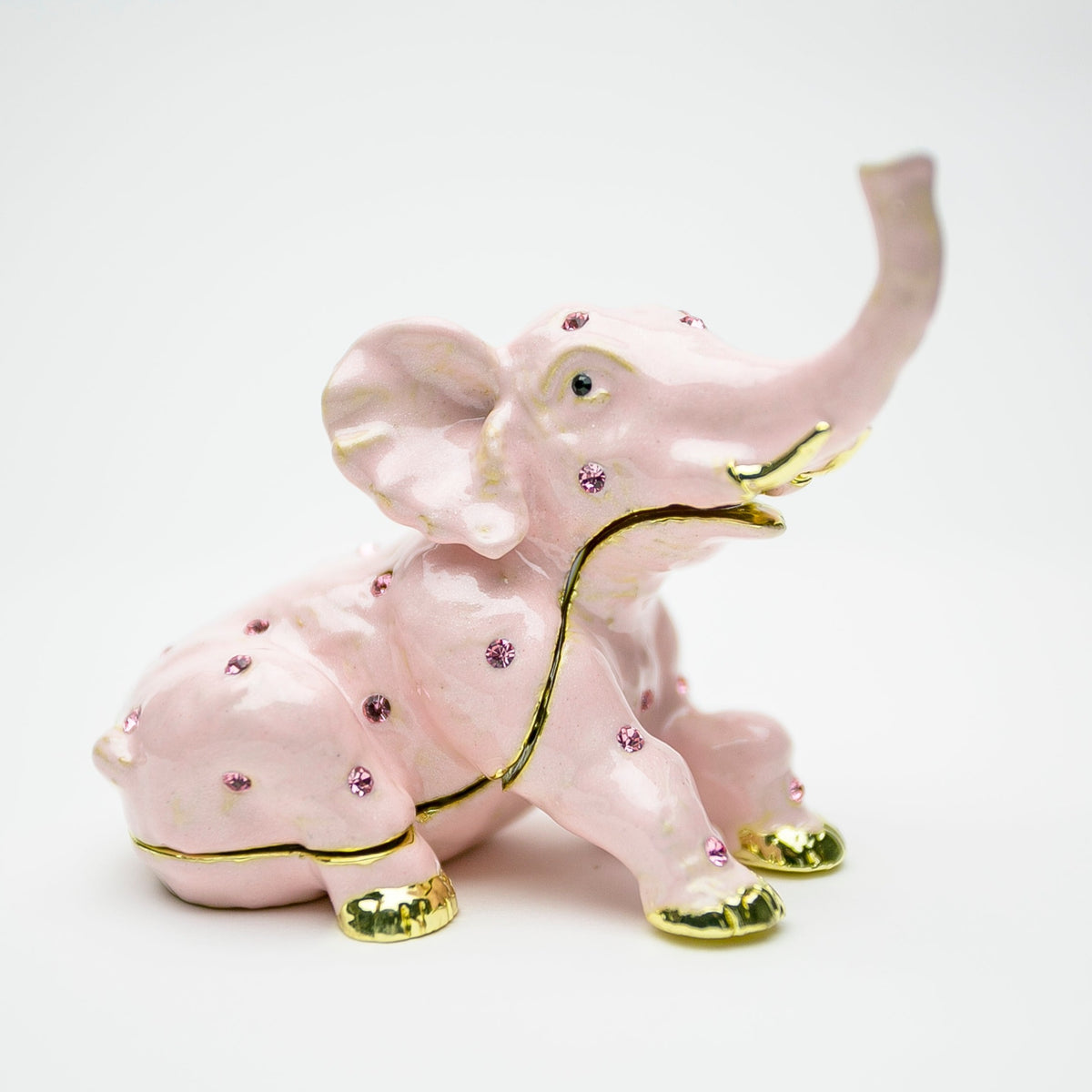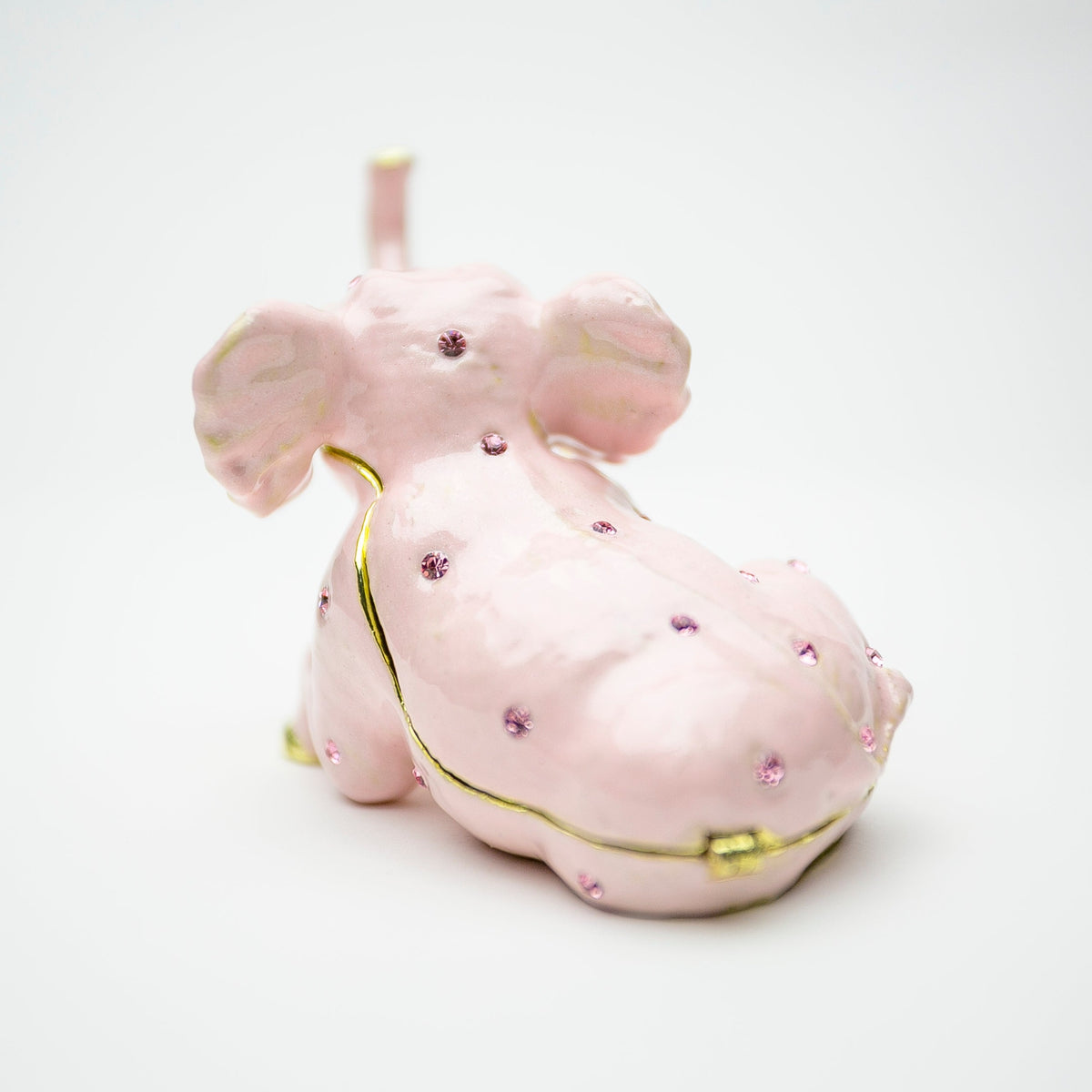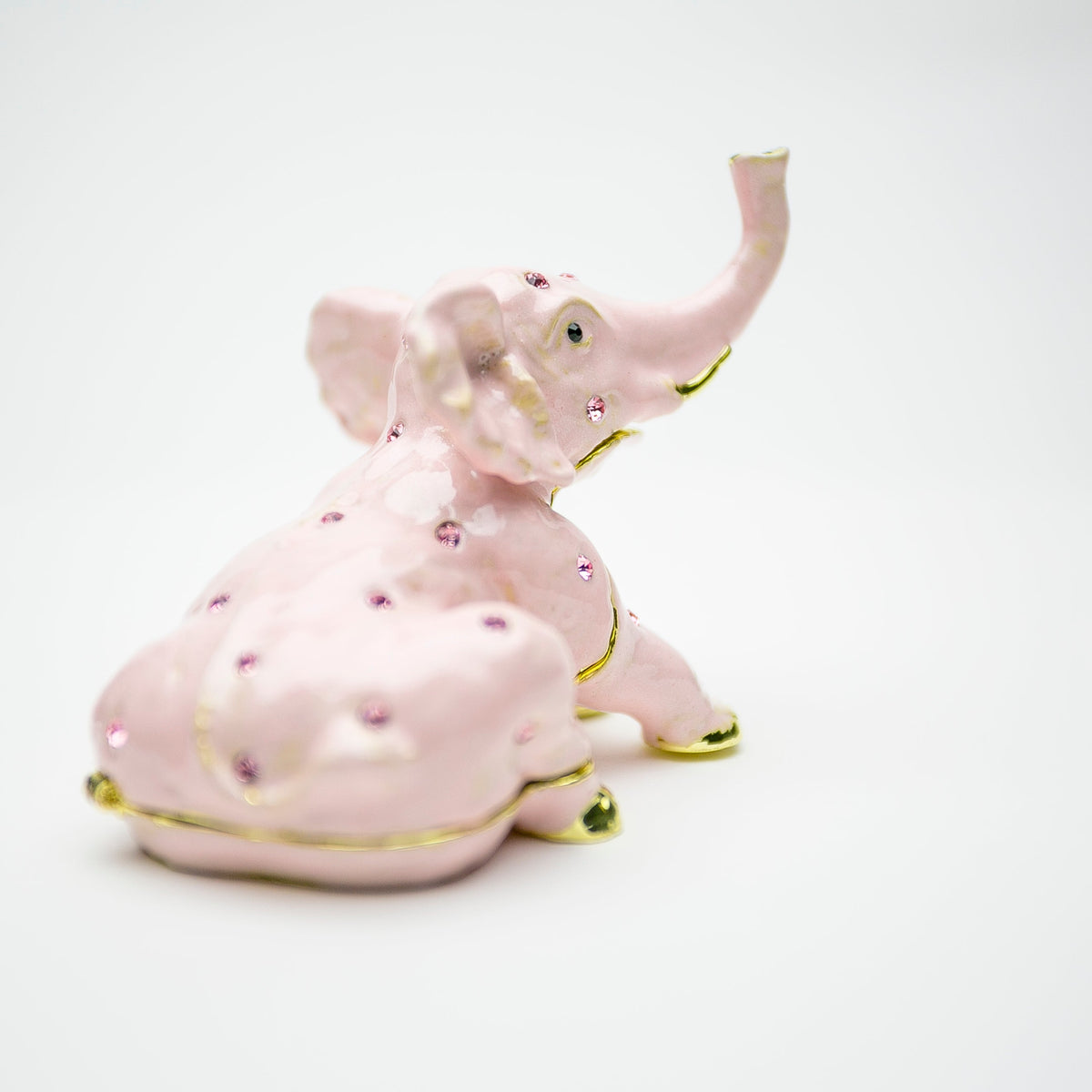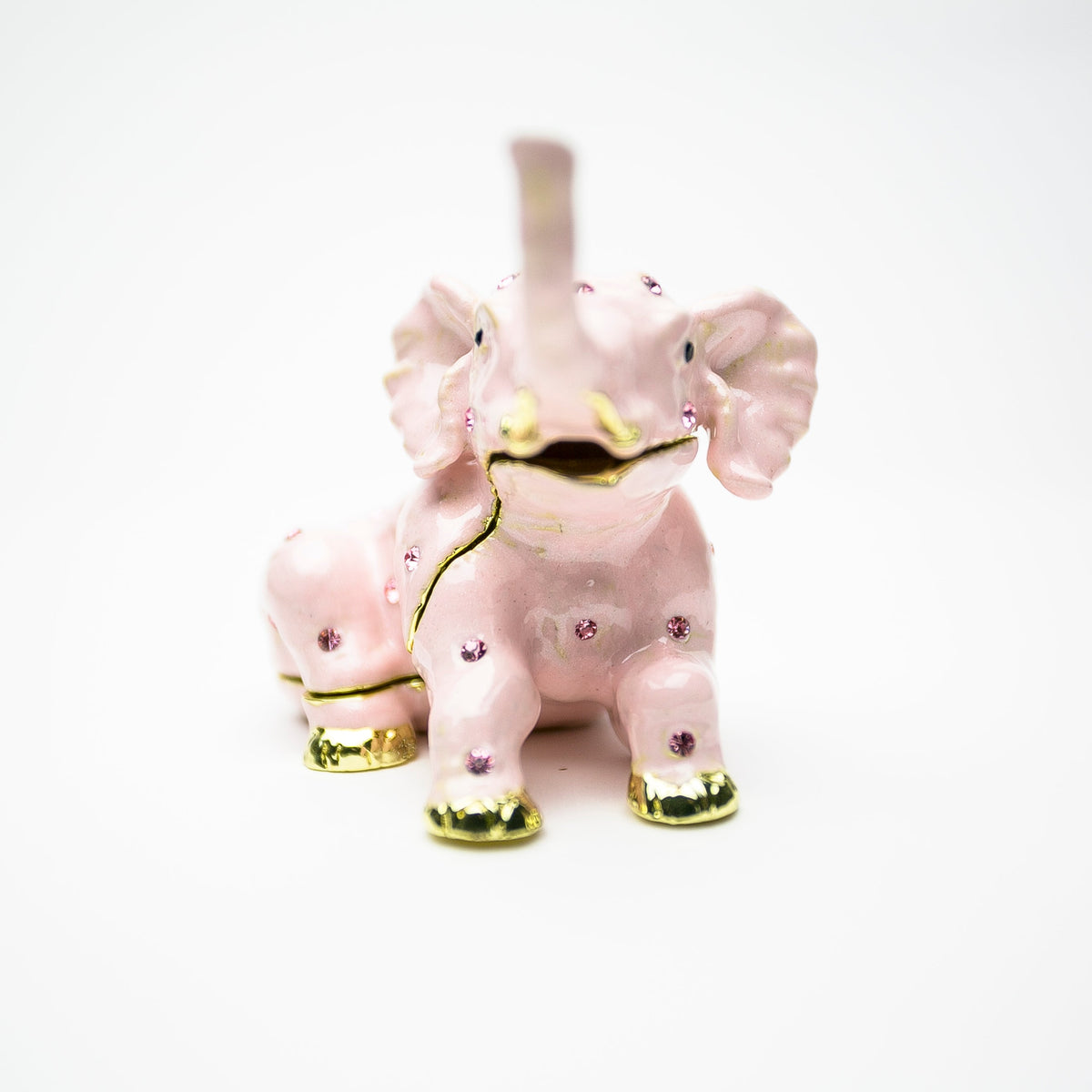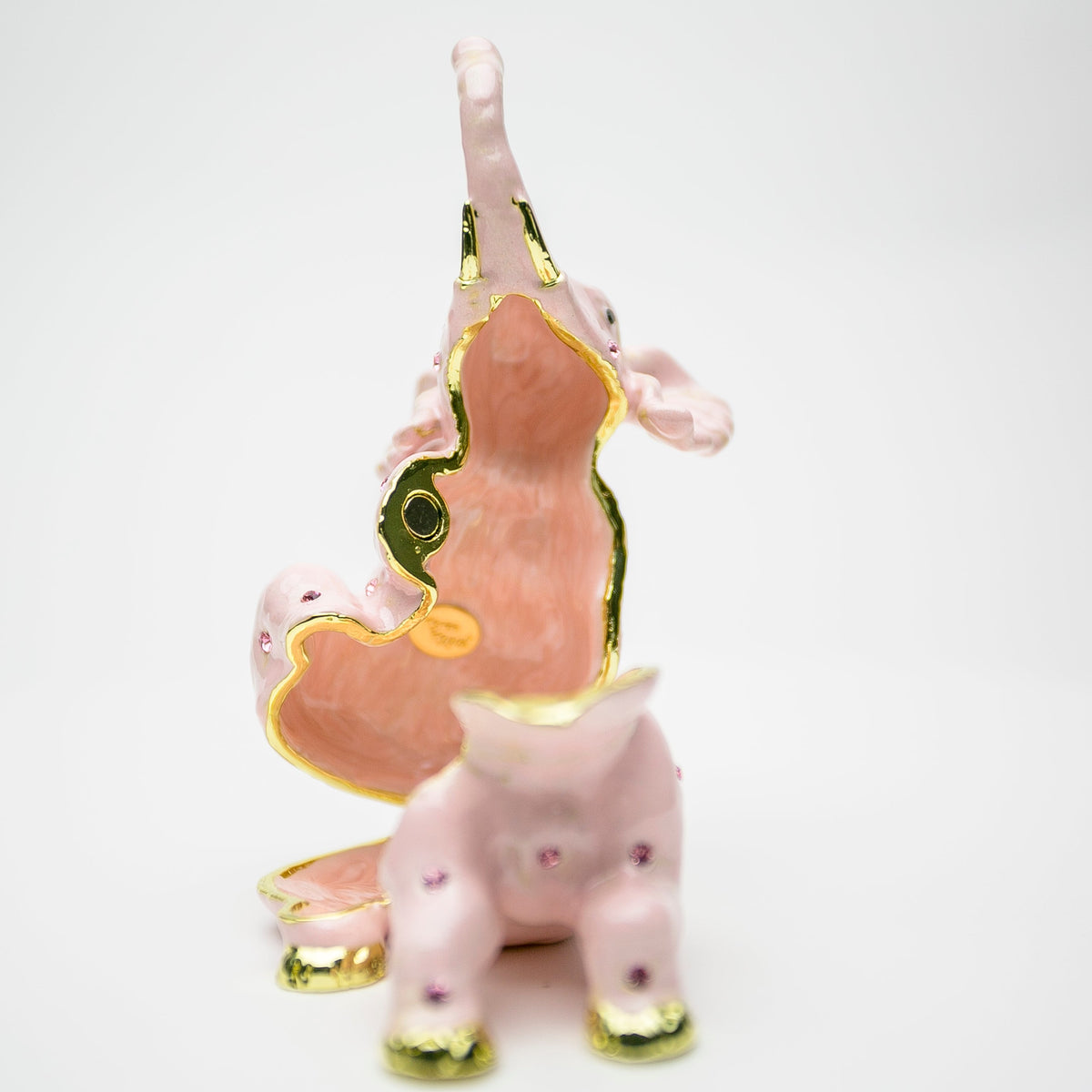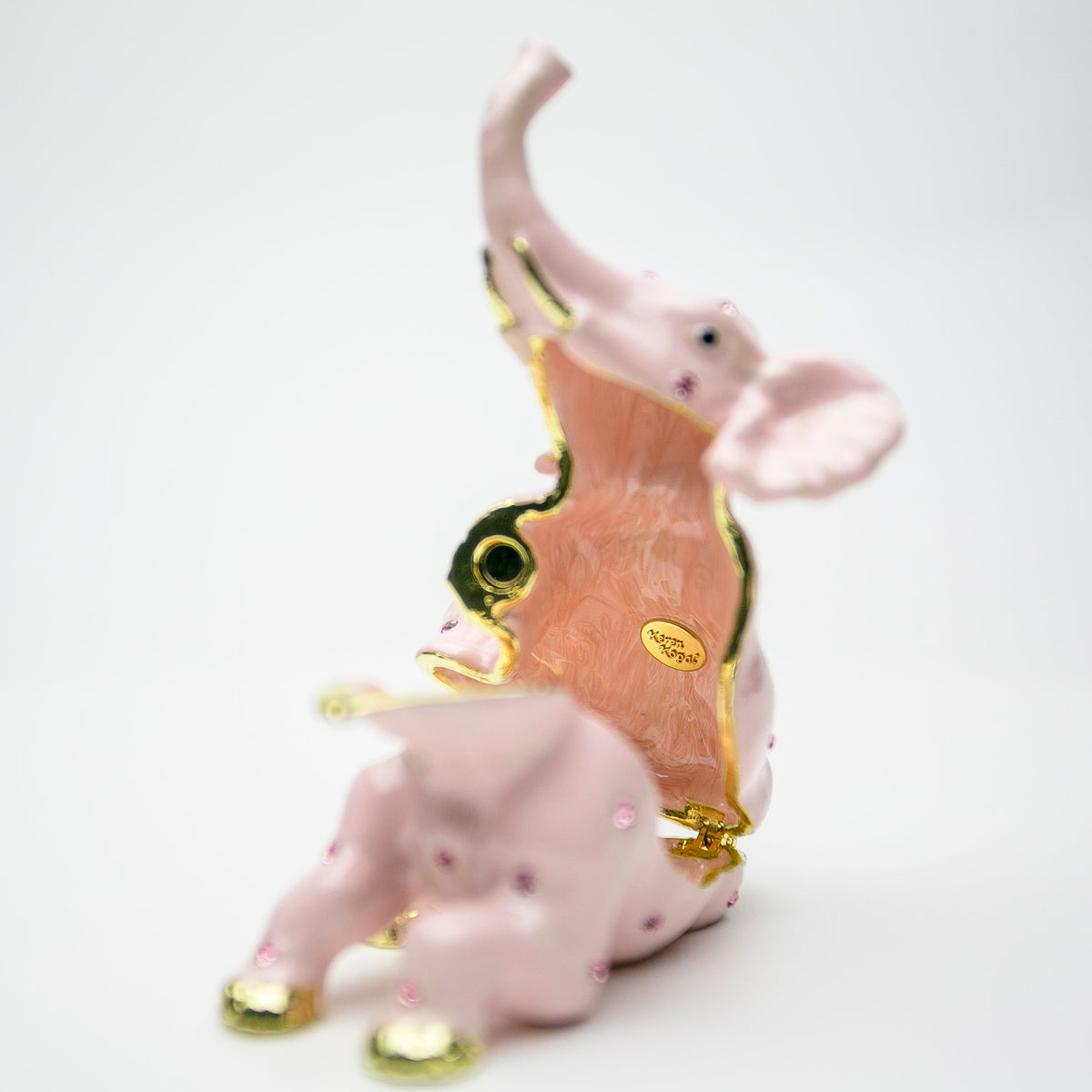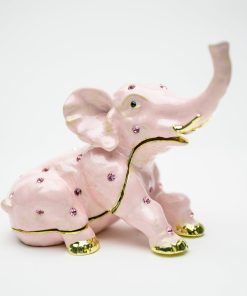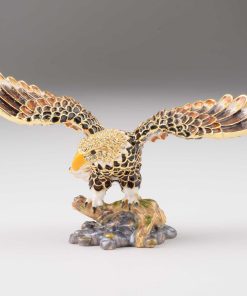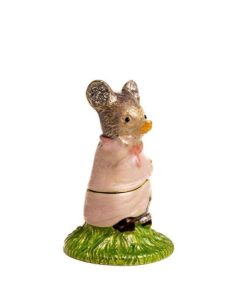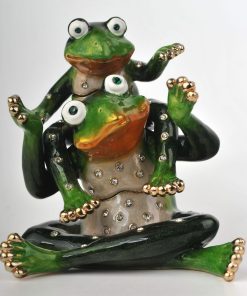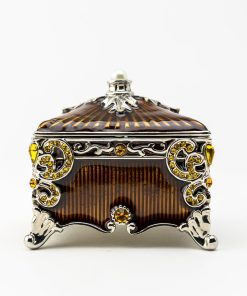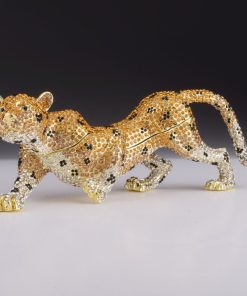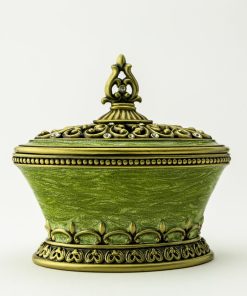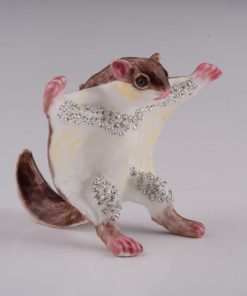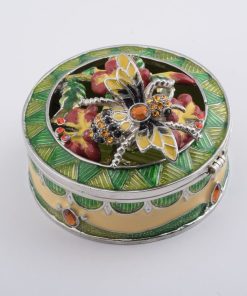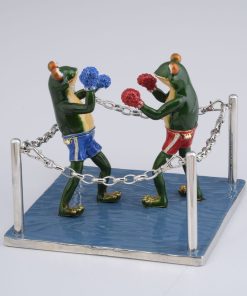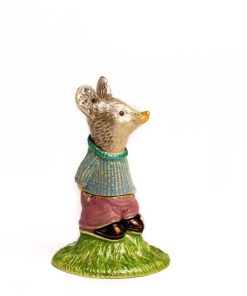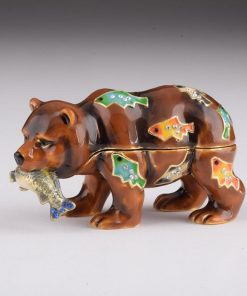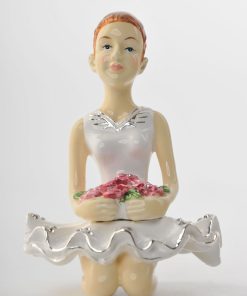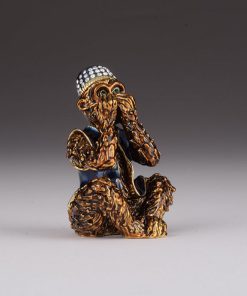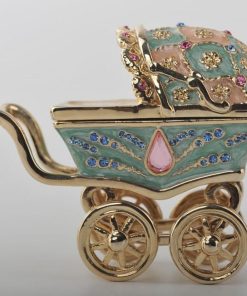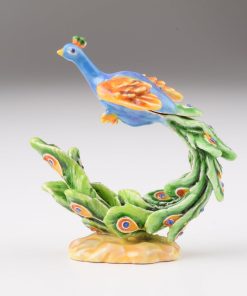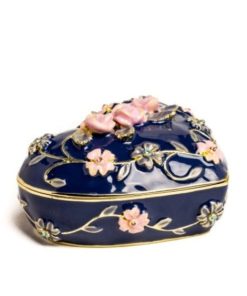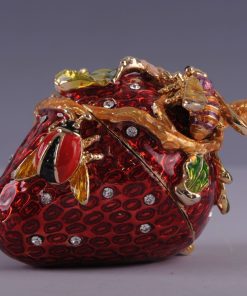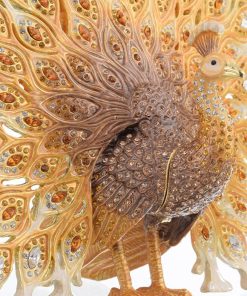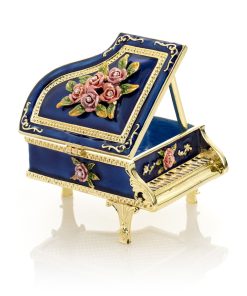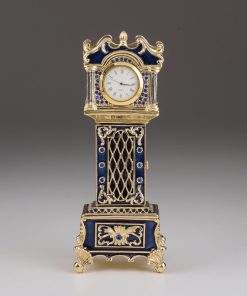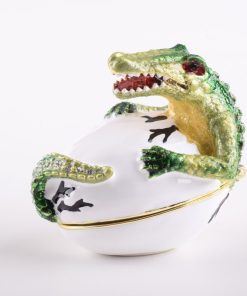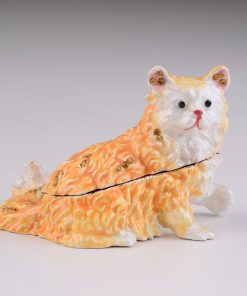Pink Elephant Keren Kopal
$ 64,00 $ 32,00
This item is part of the Elephants Trinket Box Series and part of The Keren Kopal collection, this series beautifully captures the essence of these magnificent animals, combining their historical and artistic significance with modern craftsmanship and design.
Item Size:
Centimeters : H 6.2 x W 5.4 x L 8.9
Inches : H 2.44 x W 2.12 x L 3.5
Elephants in Art
Elephants have been a significant subject in art across various cultures and time periods. Their majestic presence and symbolic meanings have inspired artists to depict them in numerous forms, from ancient carvings and paintings to modern sculptures and decorative items like those in the Keren Kopal collection. The intricate designs and luxurious materials used in these trinket boxes reflect the high regard and admiration for elephants in the art world.
Elephants in History
Historically, elephants have played crucial roles in various civilizations. In ancient India, they were revered and used in warfare, ceremonies, and as symbols of power and wisdom. The famous war elephants of Hannibal during the Punic Wars are another example of their historical significance. In Southeast Asia, elephants have been integral to logging and transportation, showcasing their strength and utility.
Symbolism and Meanings of Elephants in Different Cultures and Religions
Hinduism
In Hinduism, the elephant is revered as a sacred animal, primarily associated with the god Ganesha, who has the head of an elephant. Ganesha is worshipped as the remover of obstacles and the god of beginnings and wisdom. Elephants also symbolize royalty and divinity in Hindu culture, often seen in temple architecture and religious festivals.
Buddhism
In Buddhism, the elephant is a symbol of mental strength and enlightenment. The white elephant is particularly significant, representing purity and the birth of the Buddha. According to legend, Queen Maya, the mother of Buddha, dreamt of a white elephant before his birth, signifying his future greatness.
African Cultures
In many African cultures, elephants are symbols of strength, power, and leadership. They are often associated with the chief or king, embodying qualities such as wisdom, patience, and longevity. Elephants also play a crucial role in folklore and are considered protectors of the community.
Chinese Culture
In Chinese culture, elephants symbolize good luck, prosperity, and longevity. They are often depicted in art and feng shui practices, where placing elephant statues in the home is believed to attract positive energy and protect against misfortune.
Western Symbolism
In Western cultures, elephants are often seen as symbols of intelligence, memory, and loyalty. The phrase “an elephant never forgets” highlights their reputed memory and cognitive abilities. Elephants also symbolize conservation and the fight against poaching, representing the broader environmental movement.
The Keren Kopal elephant trinket boxes encapsulate these rich cultural significances, making them not just decorative items but also symbols of the diverse meanings attributed to elephants across the world.
• Handmade by the artist Keren Kopal.
• Plated with 24K Gold.
• Each crystal is handpicked and artistically placed on each piece.
• The trinket box has a magnetic fastener to secure the closure.
• Every Keren Kopal item is shipped in an elegant black box.
• Each item is painted by hand using a unique procedure that combines a distinctive enamel technique inlaid with Austrian crystals.
Fast Shipping and Professional Packaging
We can offer a variety of shipping options due to our long-term partnership with UPS FedEx DHL. Our warehouse personnel will pack every item to our exacting requirements. Your products will be subjected to an extensive inspection and be properly packaged prior to being delivered. We deliver to thousands of clients each day across multiple countries. Our determination to be the biggest online retailer around the globe is evident by this. Both Europe and the USA have warehouses and distribution centers.
Orders with more than 1 item are assigned processing periods according to each item.
Prior to shipment before shipping, we'll examine thoroughly the items you've ordered. The majority of orders are shipped within 48 hours. The delivery estimate is between 3-7 days.
Returns
Due to the multiple parties involved, including the factory and the warehouse, we're unable to effectively manage inventory. Stock levels can fluctuate at any time. It is possible that the stocks could be depleted after the order has been made.
Our policy lasts for a period of 30 days. We cannot replace or refund your purchase if it has been 30 days from the date of purchase.
You are able to return an item when it's unopened and still in the same condition as the day you received it. It must also be returned in its original packaging.
Related products
trinket box
trinket box
trinket box
trinket box
trinket box
trinket box
trinket box
trinket box
trinket box
trinket box
trinket box
trinket box
trinket box
trinket box
trinket box
trinket box
trinket box
trinket box
trinket box
trinket box
trinket box
trinket box
trinket box
trinket box
trinket box
trinket box
trinket box
trinket box
trinket box
trinket box
trinket box
